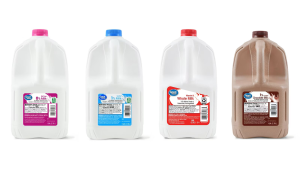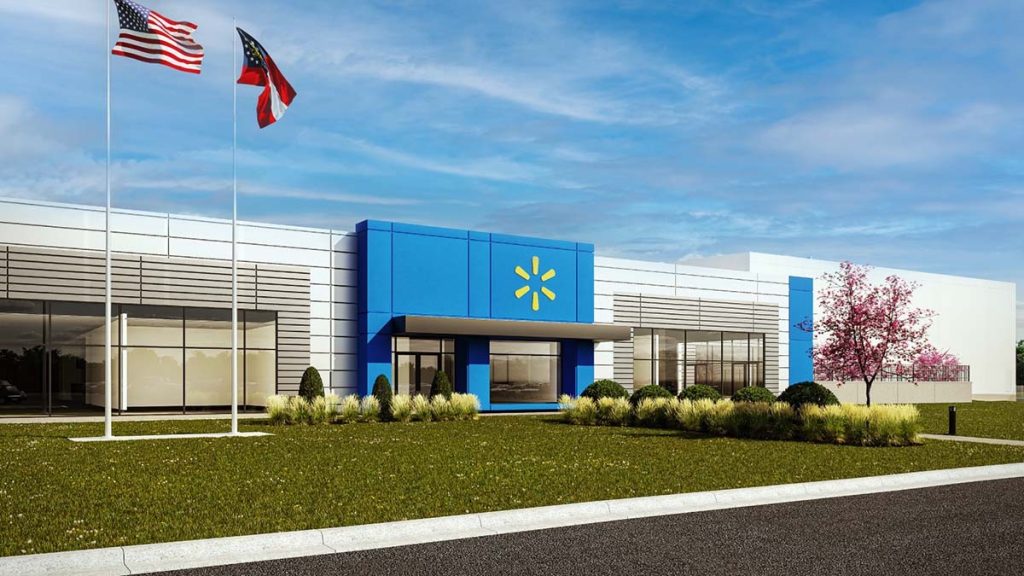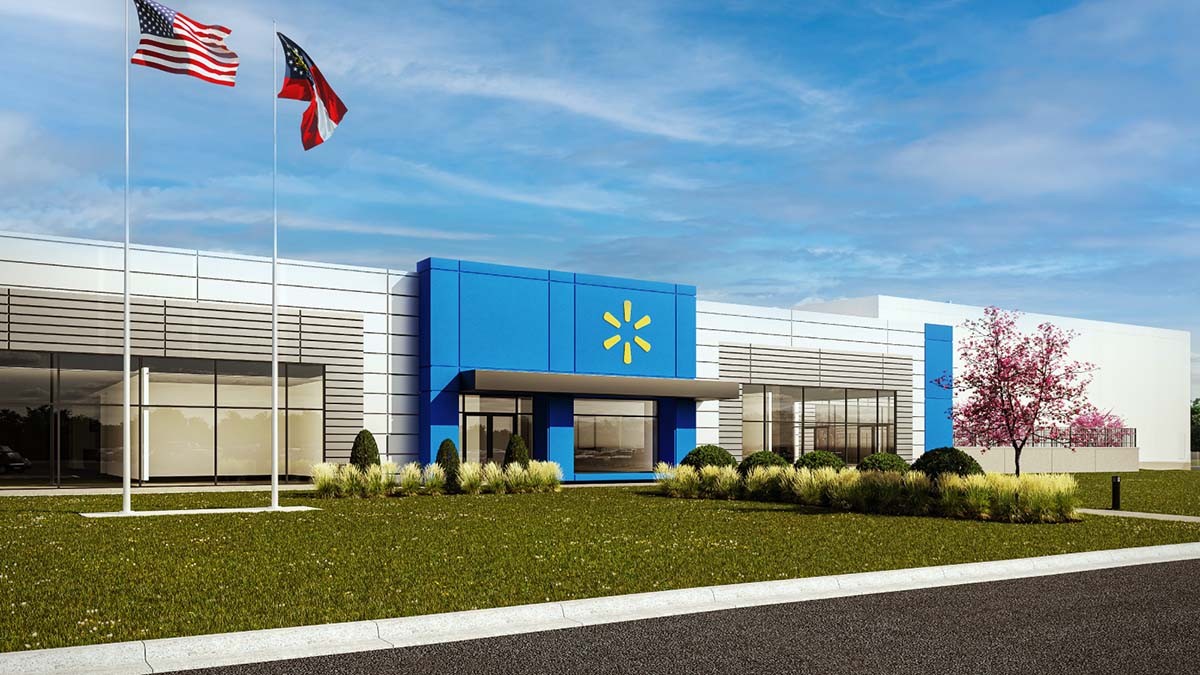Walmart Milk Processing Plant: A Game-Changer in the Dairy Industry
Walmart’s $350-Million Milk Processing Plant in Valdosta, GA – A Closer Look

From buyer to producer: Walmart’s strategic shift is reshaping the dairy supply chain.
America’s retail behemoth, Walmart, has announced ambitious plans to construct a $350-million milk processing plant in Valdosta, Ga. This strategic initiative is set to revolutionize the dairy industry by supplying over 750 Walmart and Sam’s Club stores in Georgia and neighboring states with high-quality, locally sourced milk.
“Bruce Heckman, Walmart’s vice president of manufacturing, emphasized the company’s commitment to providing high-quality milk for our customers that we can offer at the everyday low prices they rely on.”
Learn more about the dairy industry’s evolution.
The Evolution of Walmart’s Dairy Strategy – From Buyer to Producer

Local dairy farming is set for a renaissance with Walmart’s new facility promising up to 400 jobs.
Traditionally, Walmart sourced its Great-Value branded milk from various dairy cooperatives. However, the past decade has seen a paradigm shift with the retail giant progressively moving towards controlling production of this price-sensitive grocery commodity. The first fluid milk processing facility opened in 2018 in Fort Wayne, Ind., marking a significant step in this direction. This move aligns with strategies of other large grocers like Kroger, known for running their own dairy processing facilities. Discover how dairy processors are changing the game.
Enjoying our insights?
Subscribe to our newsletter to keep up with the latest industry trends and developments.
Stay Informed
Impact on Local Dairy Farming and Economy – A Deep Dive
Critics have voiced concerns that Walmart’s preference for purchasing milk from a select few large farms may put smaller farms under further pressure. However, Georgia Milk Producers, a dairy farmer trade group, notes that Georgia boasts 89 dairy farms with more than 1,000 cows per farm on average. The new facility is expected to create up to 400 jobs and will source ingredients from local farmers throughout the Southeast region, potentially boosting the local dairy farming industry and economy. Understand more about the local economy in Georgia.
Walmart’s Commitment to Sustainable Milk Production – A Sustainable Future
Walmart’s move to build its own milk processing plant is not just a business strategy but also a step towards ensuring a sustainable milk supply chain. By controlling production and sourcing locally, Walmart aims to reduce transportation costs and carbon footprint, contributing to more environmentally friendly and sustainable milk production. Dive into sustainability initiatives within the dairy and retail sectors.
What Does This Mean for the Dairy Industry? – An Industry Transformed
The establishment of the Walmart milk processing plant could signify a transformative shift in the dairy industry, especially in the Southeast. By integrating local dairy farming into its supply chain, Walmart is potentially setting new standards for retail involvement in agricultural production. Explore the future of the milk production and expansion.

Walmart’s ambitious $350-million investment is revolutionizing dairy in Georgia and beyond.
The Future of Grocery Commodity Market – Stability and Quality
As Walmart and other retailers take more control over their supply chains, the grocery commodity market might see significant changes. This could lead to more stability in milk prices and potentially higher quality standards as retailers directly oversee production. Stay updated on the latest trends in the retail sector.
When Will the Walmart Milk Processing Plant Begin Operations? – A Timeline

The long-term implications extend beyond economics, representing a shift in how retailers interact with agriculture.
The new fluid-milk processing facility is scheduled to begin operations in Valdosta in late 2025. This timeline allows for the construction of the state-of-the-art facility and the establishment of partnerships with local dairy farmers. Understand the strategies being employed in the strategic expansion of the industry.
How Will This Affect Consumers? – Direct Benefits
Consumers can expect to see Walmart’s Great Value and Members Mark brands of milk and dairy products sourced directly from this new facility. This move might lead to more competitive prices and potentially fresher, more locally sourced milk products on the shelves. Stay abreast of the latest trends shaping the supply chain.
In conclusion, Walmart’s decision to build a milk processing plant in Valdosta, GA, is a significant development in the dairy industry. It reflects a broader trend of retailers taking greater control over their supply chains to ensure quality, sustainability, and cost-effectiveness. As the facility begins operations in 2025, it will be interesting to observe its impact on local dairy farming, the grocery commodity market, and consumer choices. This ambitious project not only signifies Walmart’s commitment to enhancing its supply chain but also its dedication to supporting local communities and promoting sustainable practices. Learn more about Walmart’s broader impact and initiatives.
7 Key Insights: Unveiling the Impact of Walmart’s Valdosta Milk Processing Plant
As we approach the end of our in-depth exploration of Walmart’s groundbreaking milk processing plant in Valdosta, GA, let’s distill the information into 7 key insights that encapsulate the significance and potential impact of this ambitious project:
- Strategic Supply Chain Control: Walmart’s transition from merely purchasing milk to producing it demonstrates a strategic move to control and stabilize its supply chain, ensuring consistent quality and pricing for consumers.
- Economic Boost for Valdosta: The $350-million investment is not just a commitment to quality milk production but also a significant economic boost for Valdosta, GA, promising up to 400 new jobs and supporting local infrastructure development.
- Local Dairy Farming Renaissance: By sourcing ingredients from local farmers, Walmart is potentially catalyzing a renaissance in local dairy farming, offering new opportunities and markets for small to medium-sized farms in the Southeast region.
- Sustainable Practices: Walmart’s initiative is a nod towards more sustainable milk production practices. By reducing transportation costs and focusing on local sourcing, the plant is set to minimize its carbon footprint, aligning with broader environmental sustainability goals.
- Consumer Benefits: With the promise of fresher, more locally sourced milk products at competitive prices, consumers stand to benefit directly from Walmart’s milk processing plant, enjoying high-quality products while supporting local economies.
- Industry Transformation: Walmart’s move may set a precedent for the grocery and dairy industries, encouraging other retailers to consider similar strategies to stabilize their supply chains, improve product quality, and enhance their competitive edge.
- Long-Term Implications: The long-term implications of this project extend beyond the immediate economic and consumer benefits. It represents a shift in how retailers interact with the agricultural sector, potentially leading to more integrated, sustainable, and consumer-focused food systems.
In summary, Walmart’s milk processing plant in Valdosta is more than just a facility; it’s a pivotal development in the retail and dairy industries, with far-reaching implications for supply chains, local economies, sustainability, and consumer choice. As we look towards its opening in 2025, these 7 key insights provide a framework for understanding the potential impact and significance of this ambitious project.
Explore External Resources and Insights
- Walmart Corporate Newsroom: Gain insights into Walmart’s latest initiatives, including their sustainability efforts and community projects. Visit Walmart Newsroom
- Georgia Department of Agriculture: Learn about Georgia’s agricultural landscape, dairy farming regulations, and initiatives to support local farmers. Visit Georgia Agriculture
- The National Milk Producers Federation: Get insights into the challenges and opportunities in the milk production industry from a national perspective. Visit National Milk Producers Federation




















